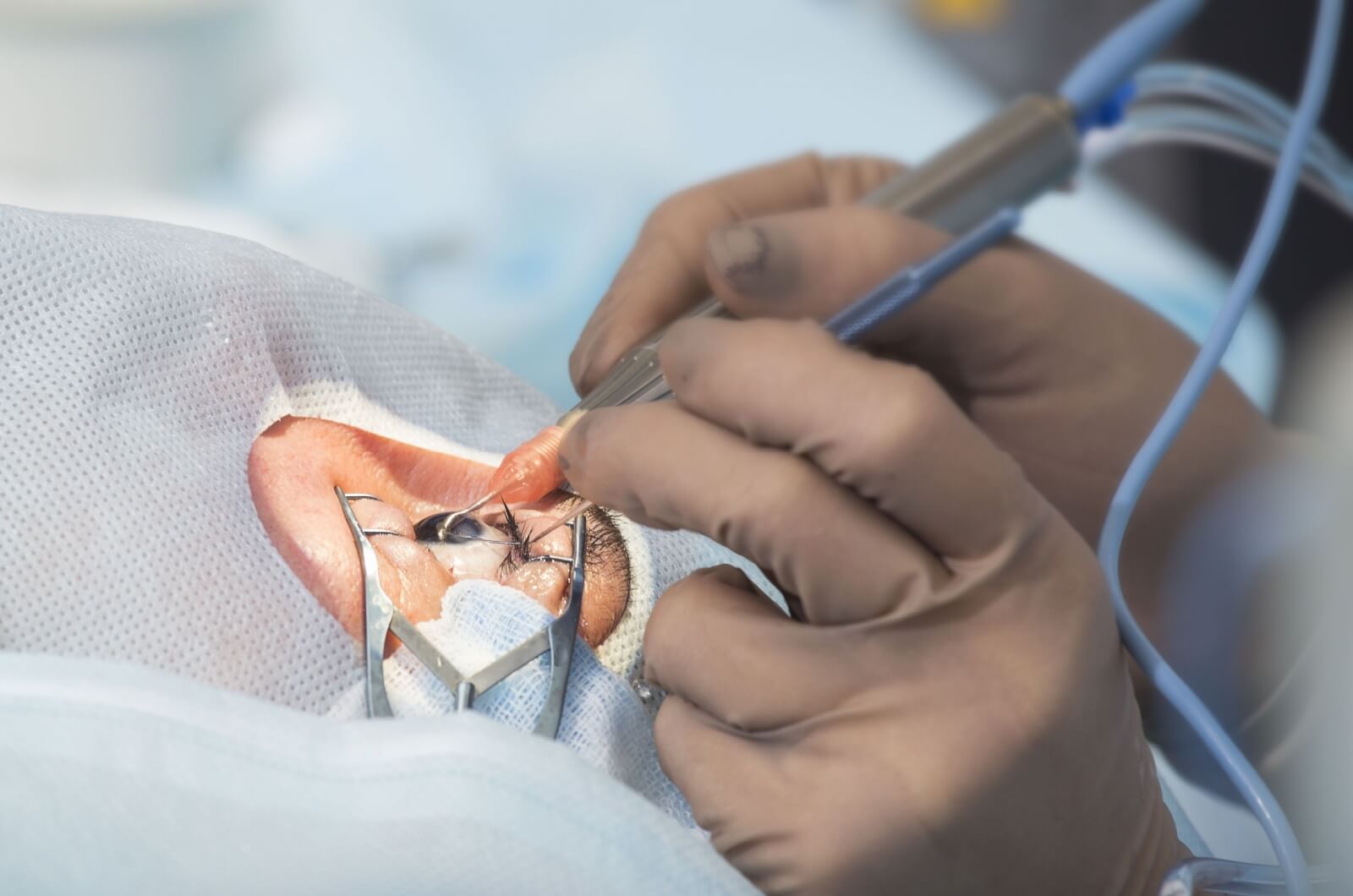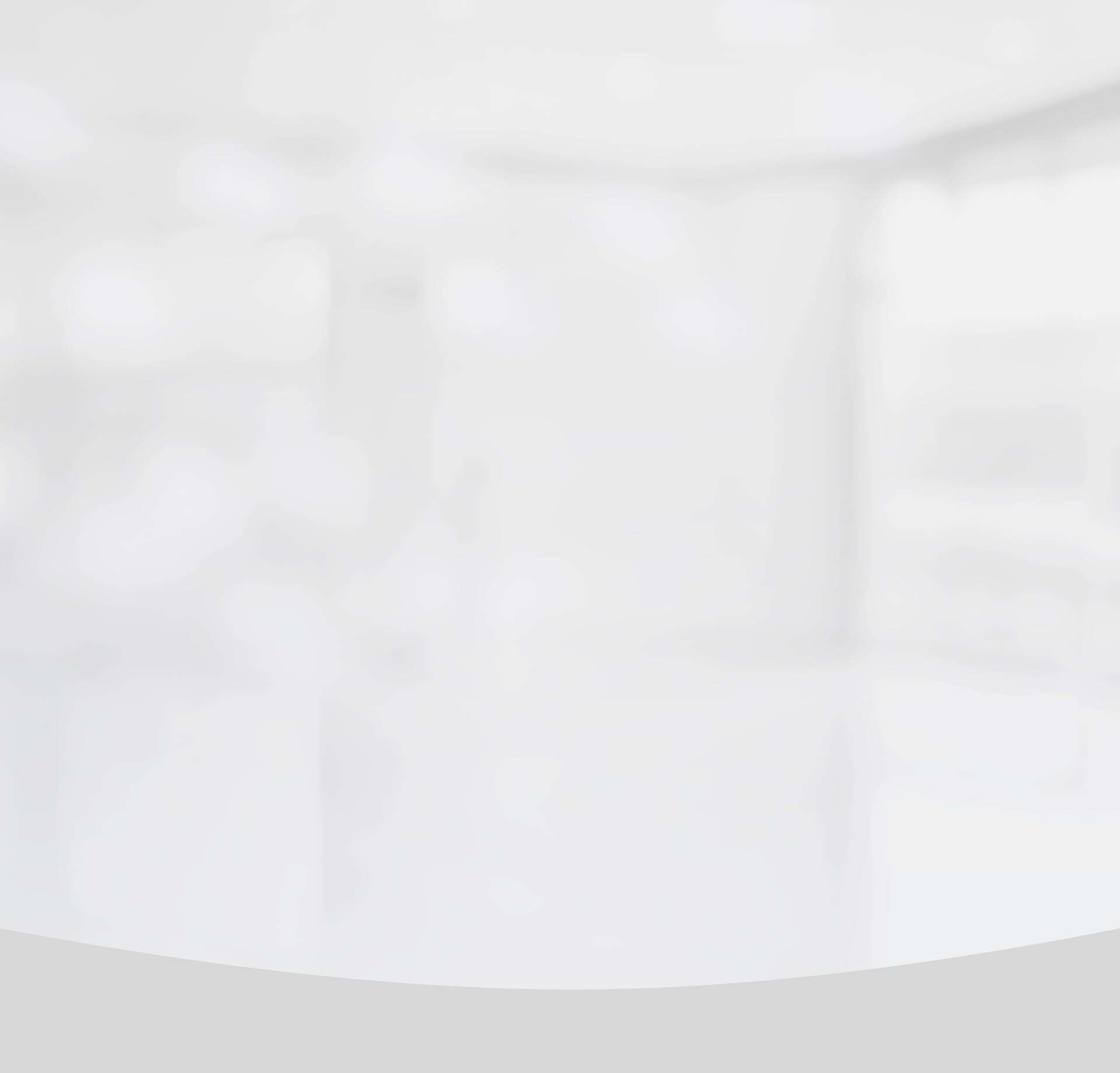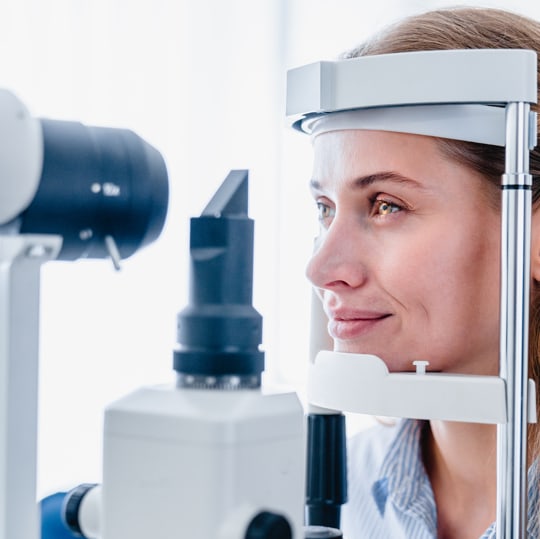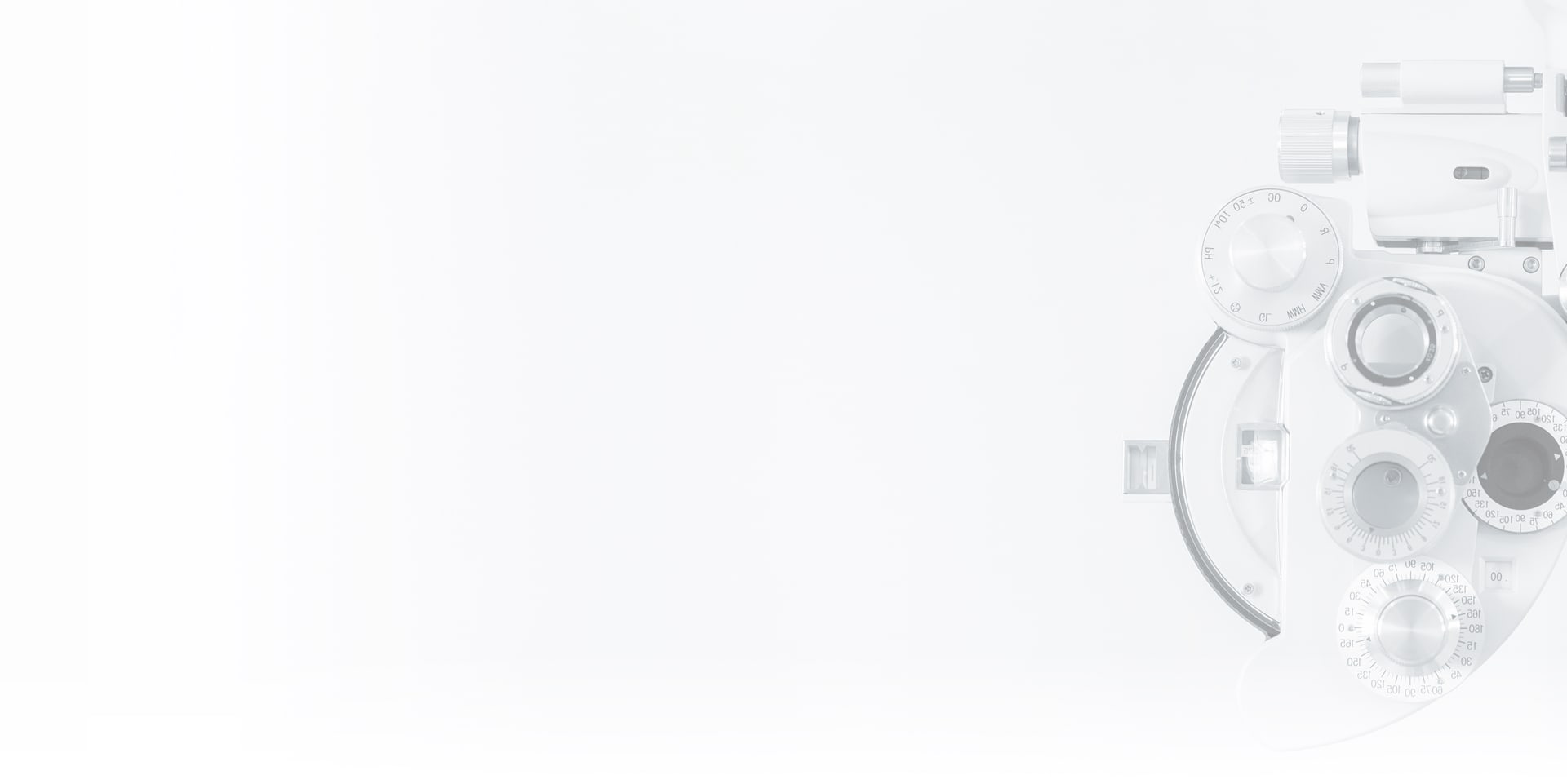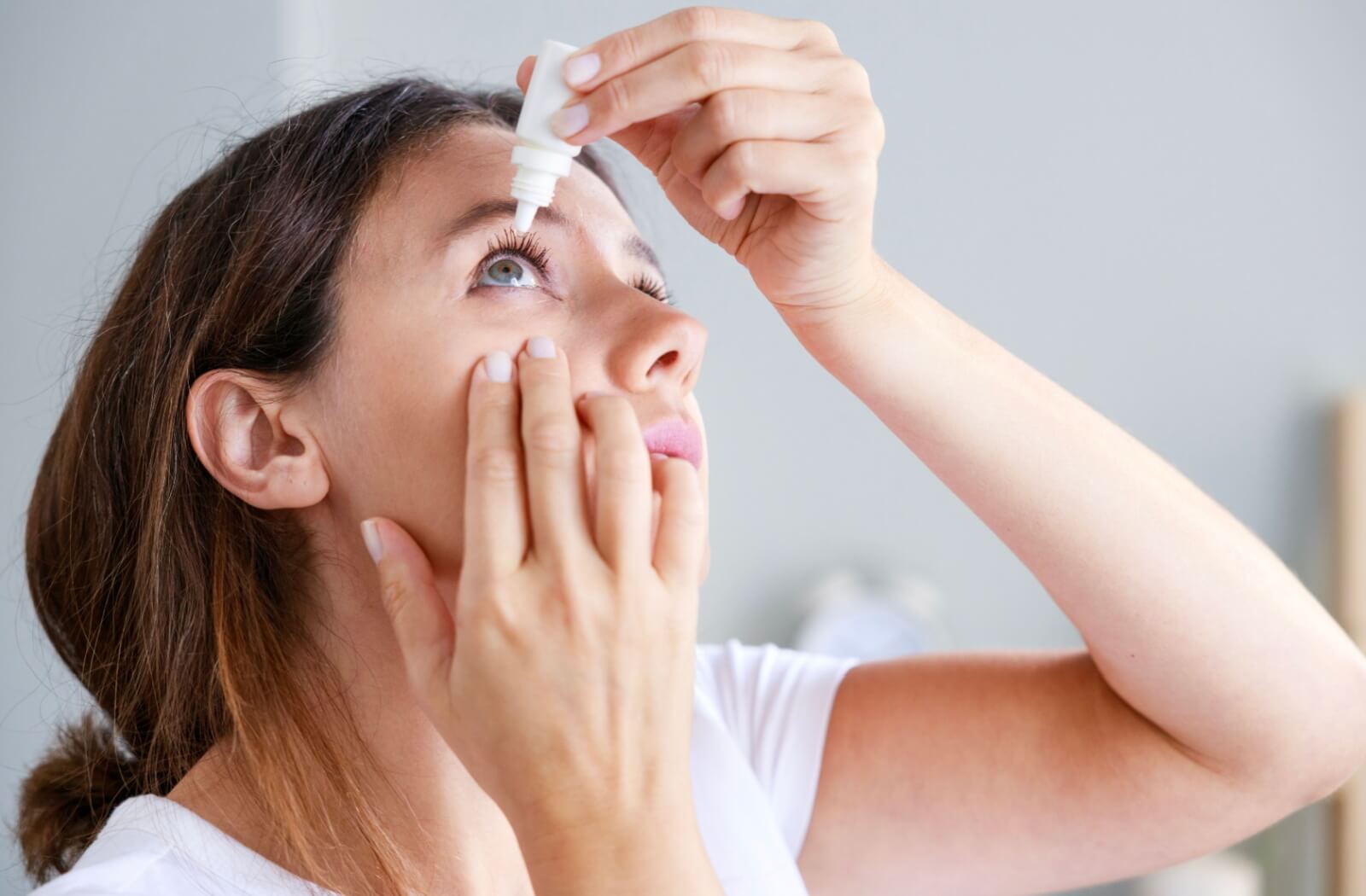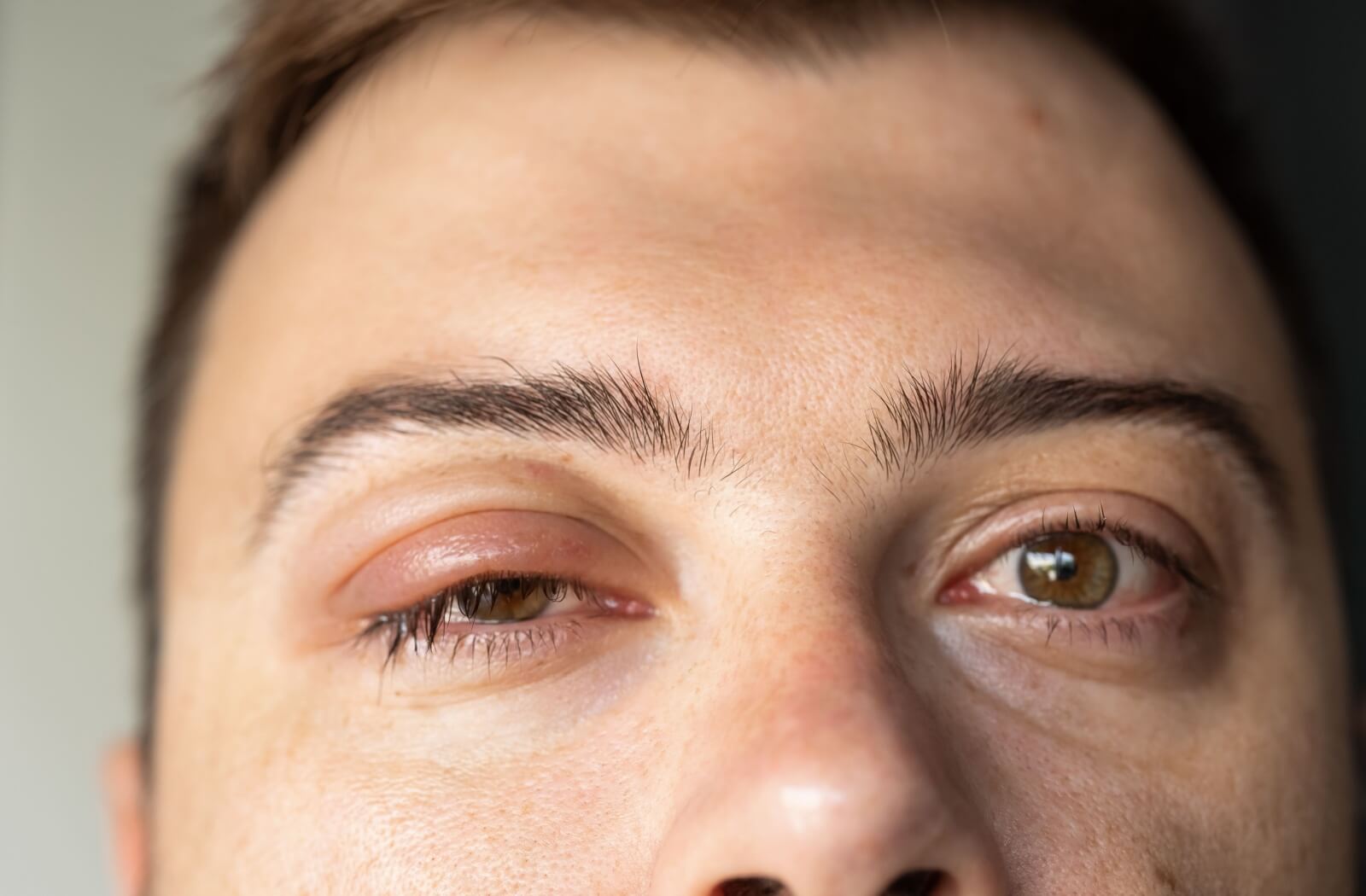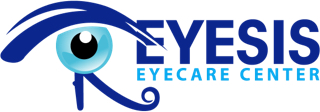Cataract surgery is one of the most commonly performed surgical procedures globally, with millions of people undergoing the operation each year.
The surgery itself is safe, relatively pain-free, and quick. In just a few hours, patients are ready to head home to rest and focus on the healing process.
Healing from cataract surgery is faster than one may think. While full recovery can take anywhere between 3 to 10 weeks, in just a few days, individuals can experience gradual improvements in their vision.
What are Cataracts?
Cataracts are an eye condition that involve clouding of the eye’s natural lens.
Cataracts develop gradually when proteins in the lens of the eye begin to clump together. This causes the lens to become cloudy over time. This clouding affects how light enters the eye, leading to blurred or distorted vision.
Cataracts are considered to be a normal part of aging, however, there are additional risk factors associated with development of the condition, including:
- Eye injuries
- Prolonged exposure to UV rays
- Smoking
Though cataracts themselves are not painful, they are a serious eye condition that can significantly impair vision over time and can lead to vision loss if left untreated. Fortunately, cataracts are a very treatable eye condition.
Common symptoms of cataracts include:
- Blurry or hazy vision
- Difficulty seeing in low light or at night
- Increased sensitivity to glare
- Seeing halos around lights
Cataracts cannot be corrected with glasses, contact lenses, or medication because of the physical change that they cause to the structure of the lens. While early symptoms may be managed with stronger lighting and glasses, these treatments don’t address the underlying cause, making cataract surgery the most effective treatment option.
Once cataracts progress enough that your ability to perform daily activities is hindered by distorted vision, your optometrist may decide that it’s time for you to undergo surgery. They will send off a referral form to an ophthalmologist, who will further evaluate the health of your eye and perform the surgery.
During cataract surgery, the cloudy lens is removed and replaced with an artificial intraocular lens, allowing light to pass through unobstructed and significantly improving vision quality.
Understanding Cataract Surgery
Cataract surgery is a relatively gentle, straightforward, and quick outpatient procedure that removes the eye’s cloudy lens and replaces it with a clear artificial lens, known as an intraocular lens (IOL).
The surgery is typically performed using phacoemulsification, a technique that uses ultrasound waves to break up the cloudy lens for easier removal. Once the old lens is removed, the IOL is inserted, allowing light to pass through clearly and restoring vision.
Before your surgery, you’ll undergo a comprehensive eye examination to measure the shape and size of your eye and confirm that the right IOL will be used. You may also receive instructions regarding medications to avoid and/or dietary restrictions.
During cataract surgery, you’ll be awake but sedated to provide comfort while also allowing you to respond to instructions from the ophthalmologist if necessary. Anesthetic eye drops are applied to numb the eye, further reducing discomfort during the surgery.
During the procedure, the ophthalmologist makes a small incision in the cornea to remove the clouded lens and replace it with an IOL. This incision typically self-seals, and stitches are not usually necessary.
The procedure usually takes less than 30 minutes, and you’ll go home the same day. The success rate for cataract surgery is very high, with a majority of patients experiencing improved vision following surgery.
Cataract surgery is also considered highly safe. Advances in surgical techniques and technology have significantly reduced the risks associated with the procedure. But, as with any surgical procedure, there are potential risks and complications.
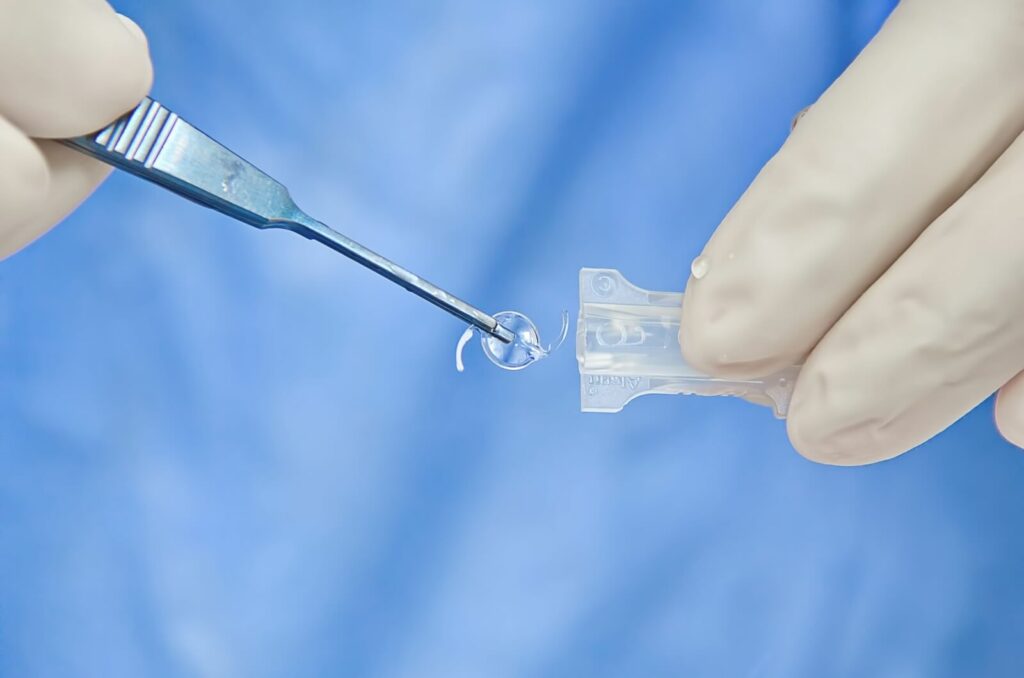
How Long Does it Take to Heal from Surgery?
The healing process after surgery is relatively quick, and many individuals experience gradual improvements in their vision over the next few days. However, full recovery can take anywhere between 3 to 10 weeks.
It’s important to give your eyes plenty of rest for the first few days following the procedure.
You can resume most daily activities within a week, but certain activities should be avoided. In particular:
- Avoid heavy lifting and strenuous exercise for at least a week.
- Refrain from rubbing your eyes to prevent infection and irritation of your cornea.
- Stay away from dusty or dirty environments to reduce the risk of infection.
- Avoid driving until your optometrist or ophthalmologist gives you the green light.
Promoting Healing Post-surgery
Taking the time to look after your eyes and overall well-being is vital for a successful recovery.
Overexerting yourself can lead to complications, slow down the healing process, and potentially damage your eye. Follow your doctor’s instructions carefully and give your body the time it needs to heal properly.
- Follow Medication Instructions: Use prescribed eye drops as directed to prevent infection and reduce inflammation.
- Keep Follow-Up Appointments: Regular check-ups with your eye doctor ensure your eye is healing correctly.
- Wear Protective Eyewear: Sunglasses protect your eyes from bright light and UV rays, while a protective shield may be recommended at night to prevent accidental rubbing.
Following these healing practices is vital because neglecting them can lead to serious complications. Risks include infections that may threaten vision, increased inflammation that can cause discomfort and hinder recovery, and even permanent vision loss in severe cases.
During this sensitive time, individuals can significantly enhance the likelihood of achieving clear and stable vision post-surgery by committing to a healthy recovery process and avoiding the frustrations that come with preventable complications.
Schedule a Consultation
Healing from cataract surgery takes a few weeks and requires one to prioritize rest and avoid overexertion and strenuous activities. By taking it easy, you’ll be on your way to enjoying clearer vision and improved quality of life.
Connect with our team at Eyesis Eyecare to schedule a consultation for your cataract surgery.


